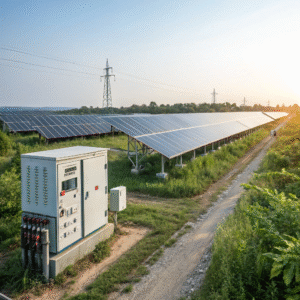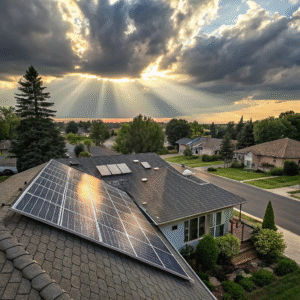How Do I Choose an Off-Grid Inverter?
by
How Do I Choose an Off-Grid Inverter?
Power outages are frustrating. You need reliable electricity, but the grid keeps failing. The right off-grid inverter can solve this problem permanently.
Choose an off-grid inverter based on your power needs (wattage), battery type compatibility, surge capacity for appliances, and efficiency rating (typically 90-95%). Pure sine wave inverters work best for sensitive electronics.
Transition Paragraph:
Now that we understand the basics, let's explore some key questions about off-grid inverters to help you make the best choice for your needs.
What Happens to Grid-Tied Inverter When Grid Power Is Off?
Imagine a storm knocks out power - will your grid-tied system keep working? The answer might surprise you.
Grid-tied inverters automatically shut down during power outages for safety reasons, leaving you without electricity unless you have battery backup or a hybrid system.
Understanding Grid-Tied Inverter Limitations
Grid-tied systems have three critical limitations during outages:
- Anti-islanding protection - Required by law to protect utility workers
- No energy storage - Unless specifically designed with batteries
- Dependence on grid voltage - Needs grid reference to operate
Solutions:
- Add battery storage (creates a hybrid system)
- Install a critical loads subpanel
- Consider a backup generator
Is a Hybrid Inverter Better Than a Grid-Tied Inverter?
You want solar power but also need reliability during outages. Is hybrid the ultimate solution?
Hybrid inverters are superior to grid-tied for most users because they provide battery backup during outages while still allowing grid connection and potential net metering benefits.
Hybrid Inverter Advantages
| Feature | Grid-Tied | Hybrid |
|---|---|---|
| Works during outages | ❌ No | ✅ Yes |
| Battery compatibility | ❌ No | ✅ Yes |
| Grid connection | ✅ Yes | ✅ Yes |
| Net metering | ✅ Yes | ✅ Yes |
| Cost | $$ | $$$ |
Key benefits:
- Continuous power during outages
- Time-of-use optimization
- Greater energy independence
- Future expansion capability
Which Is Better: Hybrid or Off-Grid Inverter?
Complete independence vs. flexible backup - which inverter type truly meets your needs?
Off-grid inverters are better for remote locations without utility access, while hybrid inverters are ideal for grid-connected homes wanting backup power and energy savings.
Decision Factors
Consider these when choosing:
Off-grid is best when:
- No utility connection available
- You need 100% energy independence
- Willing to oversize system for reliability
- Can manage higher upfront costs
Hybrid is best when:
- You have grid access but want backup
- Want to participate in net metering
- Need flexibility for future expansion
- Prefer lower battery requirements
My Insights
Having installed both systems across three continents, I've found hybrid systems offer the best balance for most homeowners. They provide security during outages while maintaining grid benefits. True off-grid makes sense only for remote locations or when grid connection is prohibitively expensive.
Conclusion
Choose hybrid inverters for grid-connected homes needing reliability, and off-grid inverters for complete energy independence in remote locations. Always size your system properly for your needs.



